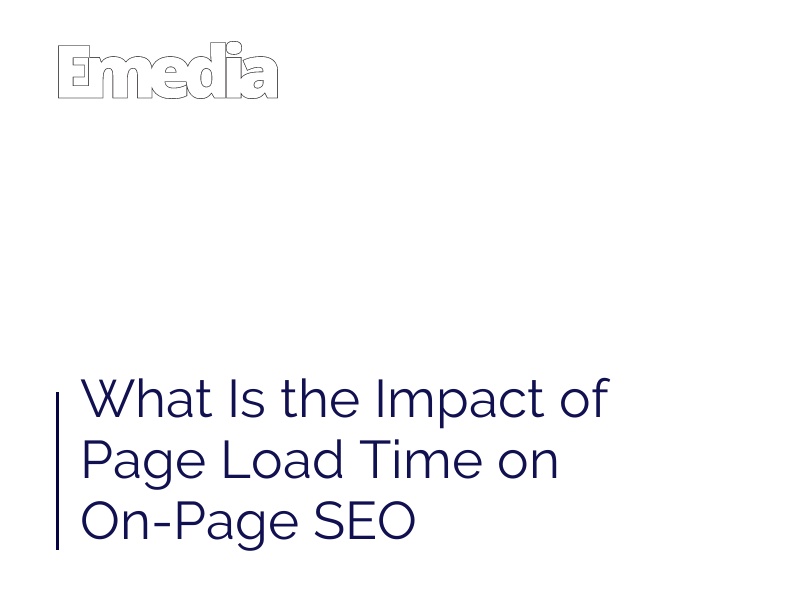Do you want to improve your on-page SEO?
Then pay attention to your page load time. Slow loading pages can negatively impact both user experience and search engine optimization.
In this article, we will explore the importance of page load time for on-page SEO, discuss the factors that affect it, and provide strategies for optimizing it.
By improving your page load time, you can enhance your website's performance and increase your chances of ranking higher in search engine results.
The Importance of Page Load Time for On-Page SEO
You should prioritize optimizing your page load time for better on-page SEO performance.
As a freedom-seeking audience, you understand the importance of mobile optimization for on-page SEO. With the increasing use of smartphones and tablets, it's crucial to ensure that your website loads quickly and seamlessly on mobile devices. Slow-loading pages can lead to high bounce rates and lower search engine rankings.
Additionally, website caching plays a significant role in on-page SEO. By caching your website's content, you can store a version of the webpage that can be quickly accessed by users, reducing load time. This not only improves the user experience but also signals to search engines that your website is well-optimized, resulting in higher rankings.
Factors Affecting Page Load Time and SEO Performance
To achieve optimal page load time and improve your SEO performance, it's essential to consider both server-side and website-specific factors. Here are five factors that can affect your website's page load time and SEO performance:
- Server response time: A slow server response time can significantly impact your website's load speed. Optimize your server response time to reduce delays.
- Website design and structure: A poorly designed or complex website structure can slow down your page load time. Optimize your website design and structure to improve load speed.
- Image optimization: Large image files can slow down your website's load speed, especially on mobile devices. Compress and optimize your images for faster loading.
- Code optimization: Bloated or inefficient code can slow down your website. Clean up your code and remove any unnecessary elements to improve load speed.
- Mobile optimization: Mobile page load time is crucial for both user experience and SEO. Optimize your website for mobile devices to ensure fast loading on all platforms.
How Slow Page Load Time Impacts User Experience and SEO
Slowing down page load time negatively impacts both your user experience and SEO. When your website takes too long to load, it frustrates your visitors and leads to a poor user experience. Users want instant access to information and tend to quickly abandon slow-loading websites. This high bounce rate signals to search engines that your website isn't meeting user expectations, which can negatively impact your search engine rankings.
Moreover, slow page load time also affects your conversion rate. Users are more likely to engage with your content and take desired actions, such as making a purchase or filling out a form, when your website loads quickly. On the other hand, if your website takes too long to load, users are likely to leave before completing any conversions. This can result in lost opportunities and revenue.
To ensure a positive user experience and improve your SEO performance, it's crucial to optimize your page load time and make sure your website loads quickly for your users.
Optimizing Page Load Time for Better On-Page SEO
By optimizing the page load time, you can significantly improve your on-page SEO performance. Improving website speed and enhancing user experience are crucial factors for achieving better search engine rankings.
Here are five ways you can optimize your page load time for better on-page SEO:
- Minimize HTTP requests by reducing the number of elements on your page.
- Compress and optimize your images to reduce their file size without compromising quality.
- Enable browser caching to store static resources on the user's device, reducing load times for returning visitors.
- Minify your HTML, CSS, and JavaScript files by removing unnecessary characters and formatting.
- Use a content delivery network (CDN) to serve your website's content from servers closer to the user, reducing latency.
Case Studies: Page Load Time and Its Impact on Search Engine Rankings
You might be wondering how page load time actually affects your search engine rankings, and the truth is that it can have a significant impact.
Case studies have shown that slow page load times can lead to lower search engine rankings. This is especially true for mobile optimization, as users expect fast loading times on their mobile devices. If your website takes too long to load on mobile, search engines may penalize it by ranking it lower in search results.
E-commerce websites are also heavily affected by page load time. Studies have found that even a one-second delay in page load time can lead to a decrease in conversion rates and revenue.
